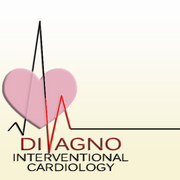A Guide to Blood Pressure Readings

Blood pressure measures the pressure that circulates blood in the body. It provides crucial insights into heart health, which is why it’s essential to understand readings. For example, high blood pressure can lead to a heart attack, which is why you must maintain healthy levels. Below is a helpful guide to readings to ensure you’re taking the proper cardiac care steps.
Low
Blood pressure is measured in systolic and diastolic readings. The first is the amount of pressure the heart creates to pump blood. Diastolic measures the amount of pressure in the arteries between heartbeats.
Low blood pressure is considered a reading of 90/60 and lower. Poor circulation deprives the body of oxygen. This is why fainting is a common result of low blood pressure. Other symptoms include fatigue, dizziness, and in extreme cases, shock.
Many factors impact blood pressure. Stress, standing up too quickly, dehydration, and how much you’ve eaten can all briefly lower levels. A cardiologist often recommends lifestyle changes. Drinking more water, using more salt, which raises levels, or wearing compression stockings to prevent blood pooling in the legs are all solutions. Your cardiologist may also prescribe medication.
Normal
 Normal blood pressure is considered 120/80 and lower. At these levels, the heart is efficiently circulating blood throughout the entire body. This includes delivering oxygen to the brain to improve cognitive function, fueling cells trying to repair a part of the body, and helping organs operate.
Normal blood pressure is considered 120/80 and lower. At these levels, the heart is efficiently circulating blood throughout the entire body. This includes delivering oxygen to the brain to improve cognitive function, fueling cells trying to repair a part of the body, and helping organs operate.
You can achieve and maintain normal blood pressure by exercising and eating well. Aim for 150 minutes of exercise each week and enjoy a balanced diet of whole grains, vegetables, fruits, and low-fat dairy. Foods rich in potassium are especially helpful because they regulate sodium levels—a common cause of high blood pressure—in the body.
High
Elevated blood pressure is 121-129/80. When untreated, a person will develop high blood pressure, 130-139/80-89. This is called hypertension. Stage 2 hypertension occurs when readings are 140/90. Hypertensive crisis—180/120—is a life-threatening situation that requires immediate medical attention.
High blood pressure puts incredible strain on your heart, causing heart attacks, strokes, heart failure, kidney disease, and dementia. Many factors contribute to high blood pressure, including being overweight, not exercising, drinking too much alcohol and caffeine, and poor sleep and diet. Most cardiologists will recommend lifestyle changes and medication to reduce levels.
Adults aged 40 and over should have their blood pressure checked at least once a year. DiVagno Interventional Cardiology, MD, PA, treats a variety of conditions for patients in Rochelle Park, NJ, and the surrounding areas. These professionals address high blood pressure, chest pain, and high cholesterol. Visit their website for a full breakdown of their cardiac care services. Call (201) 845-3535 to schedule a cardiac screening.
About the Business


